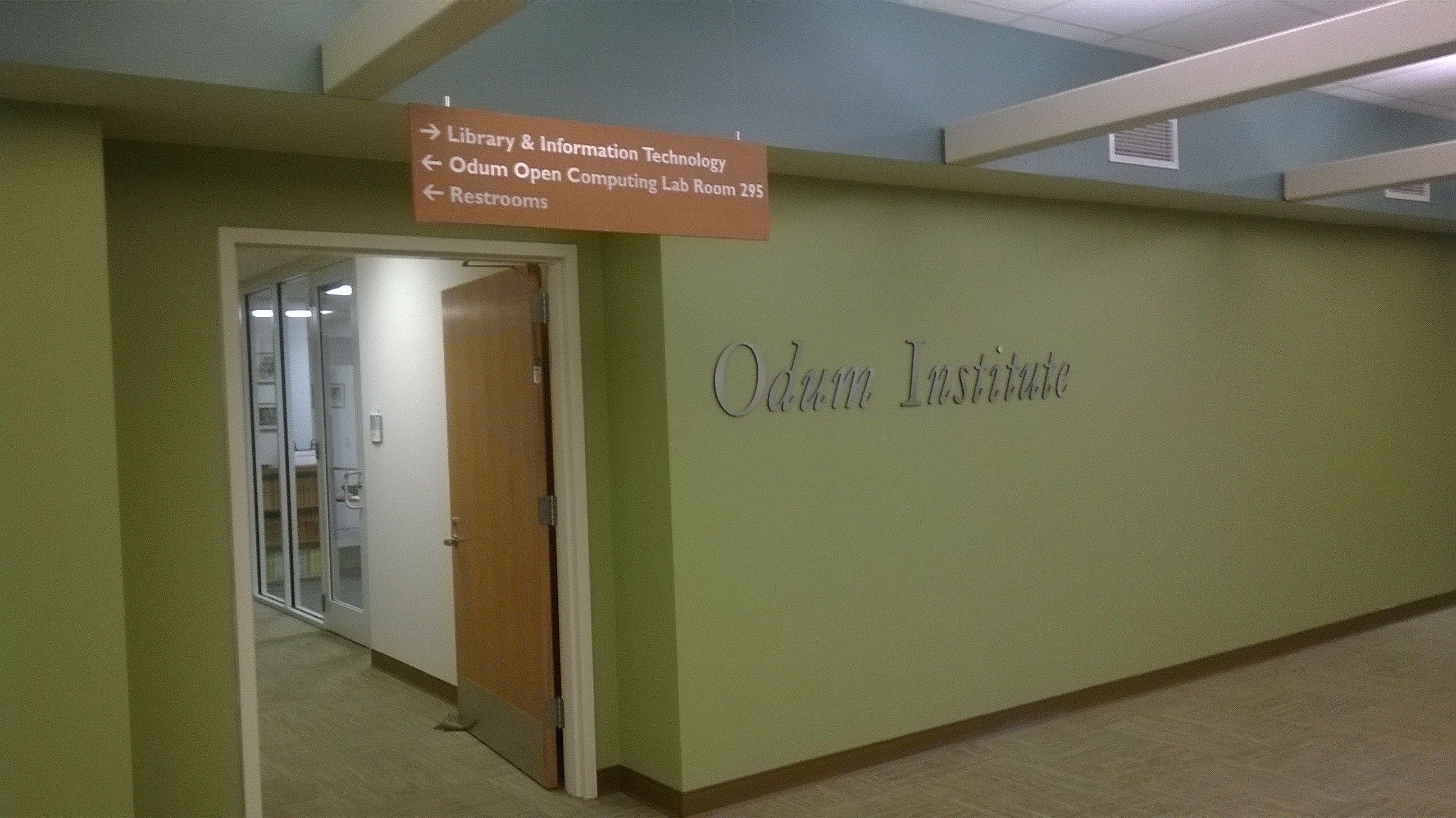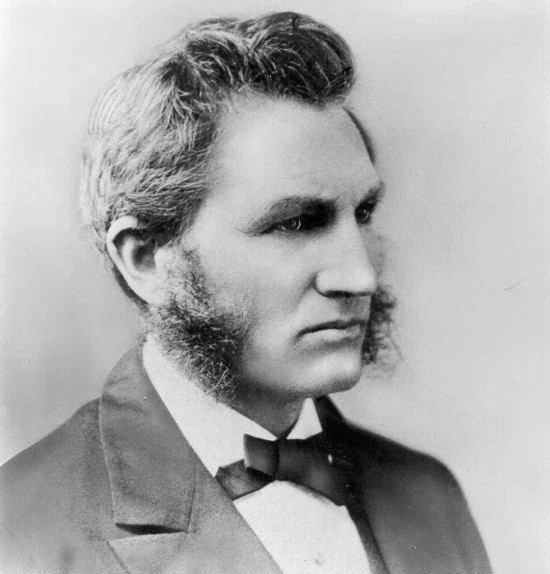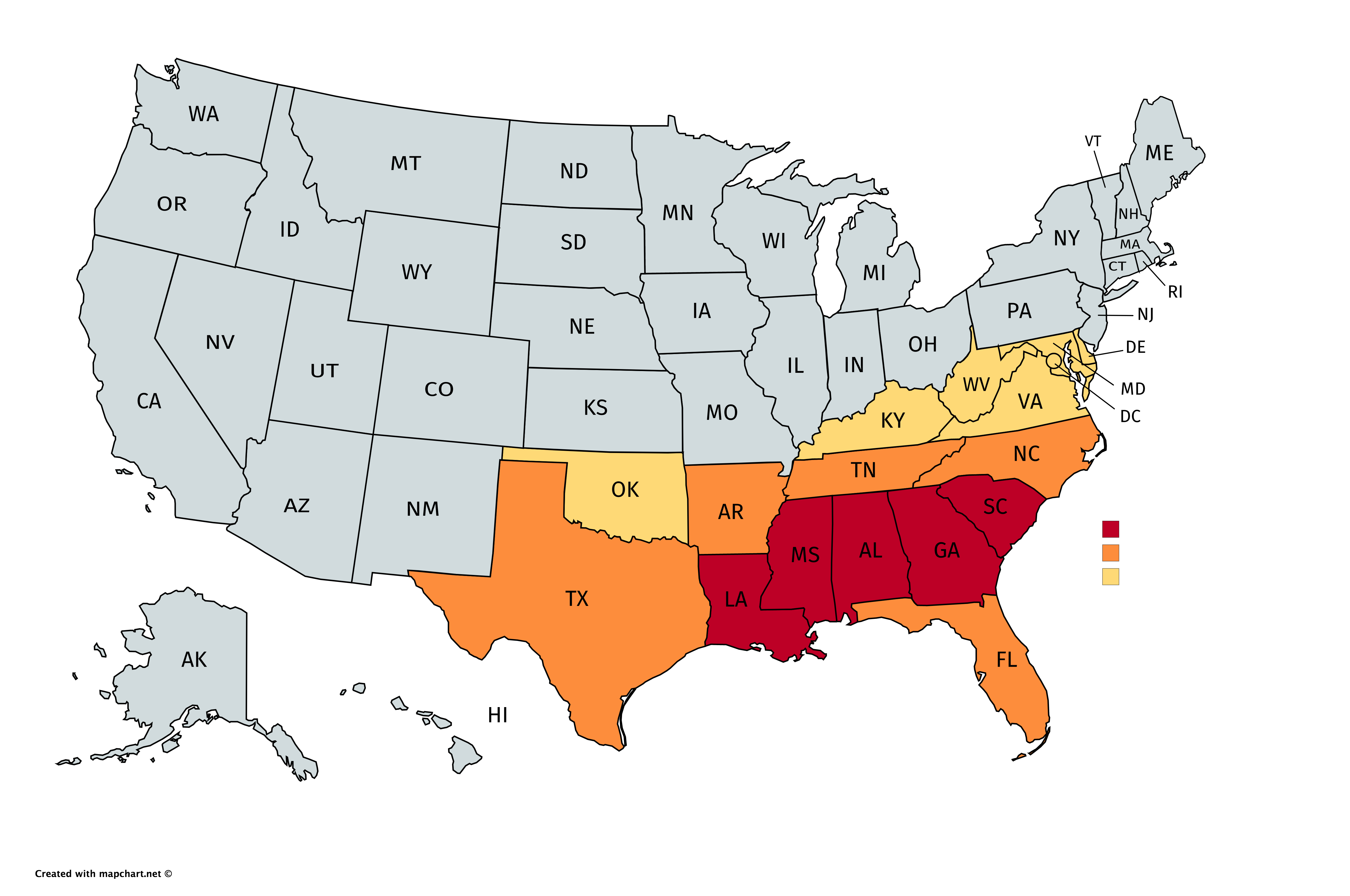|
Howard W. Odum
Howard Washington Odum (May 24, 1884 – November 8, 1954) was an American sociologist and author who researched African-American life and folklore. Beginning in 1920, he served as a faculty member at the University of North Carolina, founding the university press, the journal ''Social Forces'', and what is now the Howard W. Odum Institute for Research in Social Science, all in the 1920s. He also founded the university's School of Public Welfare, one of the first in the Southeast. With doctorates in psychology and sociology, he wrote extensively across academic disciplines, influencing several fields and publishing three novels in addition to 20 scholarly texts. He was white. Early life Born in 1884 in Bethlehem, Georgia, Howard W. Odum's parents, William Pleasants and Mary Ann (Thomas) Odum, encouraged his pursuit of education. He attended local schools through high school. Odum graduated from Emory University in 1904. Working as a teacher, he collected material on black folk ... [...More Info...] [...Related Items...] OR: [Wikipedia] [Google] [Baidu] |
Bethlehem, Georgia
Bethlehem is a town in Barrow County in the U.S. state of Georgia. As of the 2020 census, it had a population of 715. The major employer in town is Harrison Poultry, which is the largest non-government employer in Barrow County. The town was named after a local church, Bethlehem Methodist Church, and has a strong Christmas theme, with many of the street names being references to the nativity of Jesus, such as Mary, Joseph, and Manger. After the introduction of a 1967 stamp in Bethlehem, the town became known as a popular location for sending mail from during the holidays, as the post office sends letters marked "from Bethlehem." History The land that Bethlehem and the surrounding Barrow County occupies was originally occupied by Cherokee and Creek tribes. European settlers first arrived in the area in 1786. The Bethlehem Methodist Church was established in 1796 in what would later become Bethlehem. The church opened an adjacent camp ground that was used between 1851 and 1894 ... [...More Info...] [...Related Items...] OR: [Wikipedia] [Google] [Baidu] |
American Sociological Association
The American Sociological Association (ASA) is a non-profit organization dedicated to advancing the discipline and profession of sociology. Founded in December 1905 as the American Sociological Society at Johns Hopkins University by a group of fifty people, the first president of the association would be Lester Frank Ward. Today, most of its members work in academia, while around 20 percent of them work in government, business, or non-profit organizations. ASA publishes ten academic journals and magazines, along with four section journals. Among these publications, the '' American Sociological Review'' is perhaps the best known, while the newest is an open-access journal titled Socius: Sociological Research for a Dynamic World'. '' Contexts'' is one of their magazines, designed to share the study of sociology with other disciplines as well as the public. The ASA is currently the largest professional association of sociologists in the world, even larger than the International ... [...More Info...] [...Related Items...] OR: [Wikipedia] [Google] [Baidu] |
University Of North Carolina At Chapel Hill Faculty
A university () is an institution of higher (or tertiary) education and research which awards academic degrees in several academic disciplines. Universities typically offer both undergraduate and postgraduate programs. In the United States, the designation is reserved for colleges that have a graduate school. The word ''university'' is derived from the Latin ''universitas magistrorum et scholarium'', which roughly means "community of teachers and scholars". The first universities were created in Europe by Catholic Church monks. The University of Bologna (''Università di Bologna''), founded in 1088, is the first university in the sense of: *Being a high degree-awarding institute. *Having independence from the ecclesiastic schools, although conducted by both clergy and non-clergy. *Using the word ''universitas'' (which was coined at its foundation). *Issuing secular and non-secular degrees: grammar, rhetoric, logic, theology, canon law, notarial law.Hunt Janin: "The university ... [...More Info...] [...Related Items...] OR: [Wikipedia] [Google] [Baidu] |
American Sociologists
American(s) may refer to: * American, something of, from, or related to the United States of America, commonly known as the "United States" or "America" ** Americans, citizens and nationals of the United States of America ** American ancestry, people who self-identify their ancestry as "American" ** American English, the set of varieties of the English language native to the United States ** Native Americans in the United States, indigenous peoples of the United States * American, something of, from, or related to the Americas, also known as "America" ** Indigenous peoples of the Americas * American (word), for analysis and history of the meanings in various contexts Organizations * American Airlines, U.S.-based airline headquartered in Fort Worth, Texas * American Athletic Conference, an American college athletic conference * American Recordings (record label), a record label previously known as Def American * American University, in Washington, D.C. Sports teams Soccer ... [...More Info...] [...Related Items...] OR: [Wikipedia] [Google] [Baidu] |
1954 Deaths
Events January * January 1 – The Soviet Union ceases to demand war reparations from West Germany. * January 3 – The Italian broadcaster RAI officially begins transmitting. * January 7 – Georgetown-IBM experiment: The first public demonstration of a machine translation system is held in New York, at the head office of IBM. * January 10 – BOAC Flight 781, a de Havilland Comet jet plane, disintegrates in mid-air due to metal fatigue, and crashes in the Mediterranean near Elba; all 35 people on board are killed. * January 12 – Avalanches in Austria kill more than 200. * January 15 – Mau Mau leader Waruhiu Itote is captured in Kenya. * January 17 – In Yugoslavia, Milovan Đilas, one of the leading members of the League of Communists of Yugoslavia, is relieved of his duties. * January 20 – The US-based National Negro Network is established, with 46 member radio stations. * January 21 – The first nuclear- ... [...More Info...] [...Related Items...] OR: [Wikipedia] [Google] [Baidu] |
1884 Births
Events January–March * January 4 – The Fabian Society is founded in London. * January 5 – Gilbert and Sullivan's '' Princess Ida'' premières at the Savoy Theatre, London. * January 18 – Dr. William Price attempts to cremate his dead baby son, Iesu Grist, in Wales. Later tried and acquitted on the grounds that cremation is not contrary to English law, he is thus able to carry out the ceremony (the first in the United Kingdom in modern times) on March 14, setting a legal precedent. * February 1 – ''A New English Dictionary on historical principles, part 1'' (edited by James A. H. Murray), the first fascicle of what will become ''The Oxford English Dictionary'', is published in England. * February 5 – Derby County Football Club is founded in England. * March 13 – The siege of Khartoum, Sudan, begins (ends on January 26, 1885). * March 28 – Prince Leopold, the youngest son and the eighth child of Queen Victoria and ... [...More Info...] [...Related Items...] OR: [Wikipedia] [Google] [Baidu] |
Southern Historical Collection
The Southern Historical Collection is a repository of distinct archival collections at the University of North Carolina at Chapel Hill which document the culture and history of the American South. These collections are made up of unique primary materials, such as manuscripts, letters, photographs, diaries, drawings, scrapbooks, journals, oral histories, maps, ledgers, moving images, literary manuscripts, albums, and other materials. History The North Carolina Historical Society began collecting manuscripts at the University of North Carolina at Chapel Hill in 1844. The collecting stopped in the early twentieth century when the Society ceased operation. The holdings were then transferred to the University Library. By the 1920s, Dr. J. G. de Roulhac Hamilton, a professor of history was corresponding about the idea of creating "a great library of Southern human records." Hamilton began traveling the South, in his "faithful Fords," seeking out and gathering materials. On January 14, ... [...More Info...] [...Related Items...] OR: [Wikipedia] [Google] [Baidu] |
Da Capo Press
Da Capo Press is an American publishing company with headquarters in Boston, Massachusetts. It is now an imprint of Hachette Books. History Founded in 1964 as a publisher of music books, as a division of Plenum Publishers, it had additional offices in New York City, Philadelphia, Los Angeles, and Emeryville, California. The year prior, Da Capo Press had net sales of over $2.5 million. Da Capo Press became a general trade publisher in the mid-1970s. It was sold to the Perseus Books Group in 1999 after Plenum was sold to Wolters Kluwer. In the last decade, its production has consisted of mostly nonfiction titles, both hardcover and paperback, focusing on history, music, the performing arts, sports, and popular culture. In 2003, Lifelong Books was founded as a health and wellness imprint. When Marlowe & Company became part of the imprint in 2007, Lifelong's range was expanded to include the New Glucose Revolution series and numerous diabetes titles, as well as books on healthf ... [...More Info...] [...Related Items...] OR: [Wikipedia] [Google] [Baidu] |
Southern United States
The Southern United States (sometimes Dixie, also referred to as the Southern States, the American South, the Southland, or simply the South) is a geographic and cultural region of the United States of America. It is between the Atlantic Ocean and the Western United States, with the Midwestern and Northeastern United States to its north and the Gulf of Mexico and Mexico to its south. Historically, the South was defined as all states south of the 18th century Mason–Dixon line, the Ohio River, and 36°30′ parallel.The South . ''Britannica.com''. Retrieved June 5, 2021. Within the South are different subregions, such as the |
Deep South
The Deep South or the Lower South is a cultural and geographic subregion in the Southern United States. The term was first used to describe the states most dependent on plantations and slavery prior to the American Civil War. Following the war, the region suffered economic hardship and was a major site of racial tension during and after the Reconstruction era. Before 1945, the Deep South was often referred to as the "Cotton States" since cotton was the primary cash crop for economic production. The civil rights movement in the 1950s and 1960s helped usher in a new era, sometimes referred to as the New South. Usage The term "Deep South" is defined in a variety of ways: *Most definitions include the following states: Louisiana, Mississippi, Alabama, Georgia, and South Carolina. *Texas, and Florida are sometimes included,Neal R. Pierce, ''The Deep South States of America: People, Politics, and Power in the Seven States of the Deep South'' (1974), pp 123–61 due to being pe ... [...More Info...] [...Related Items...] OR: [Wikipedia] [Google] [Baidu] |
Black Belt In The American South
The Black Belt in the American South refers to the social history, especially concerning slavery and black workers, of the geological region known as the Black Belt. The geology emphasizes the highly fertile black soil. Historically, the black belt economy was based on cotton plantations – along with some tobacco plantation areas along the Virginia-North Carolina border. The valuable land was largely controlled by rich whites, and worked by very poor, primarily black slaves who in many counties constituted a majority of the population. Generally the term is applied to a larger region than that defined by its geology. After 1945, a large fraction of the laborers were replaced by machinery, and they joined the Great Migration to cities of the Midwest and West. Political analysts and historians continue to use the term Black Belt to designate some 200 counties in the South from Virginia to Texas that have a history of majority African-American population and cotton production ... [...More Info...] [...Related Items...] OR: [Wikipedia] [Google] [Baidu] |
Howard W
Howard is an English-language given name originating from Old French Huard (or Houard) from a Germanic source similar to Old High German ''*Hugihard'' "heart-brave", or ''*Hoh-ward'', literally "high defender; chief guardian". It is also probably in some cases a confusion with the Old Norse cognate ''Haward'' (''Hávarðr''), which means "high guard" and as a surname also with the unrelated Hayward. In some rare cases it is from the Old English ''eowu hierde'' "ewe herd". In Anglo-Norman the French digram ''-ou-'' was often rendered as ''-ow-'' such as ''tour'' → ''tower'', ''flour'' (western variant form of ''fleur'') → ''flower'', etc. (with svarabakhti). A diminutive is "Howie" and its shortened form is "Ward" (most common in the 19th century). Between 1900 and 1960, Howard ranked in the U.S. Top 200; between 1960 and 1990, it ranked in the U.S. Top 400; between 1990 and 2004, it ranked in the U.S. Top 600. People with the given name Howard or its variants include: Given ... [...More Info...] [...Related Items...] OR: [Wikipedia] [Google] [Baidu] |






